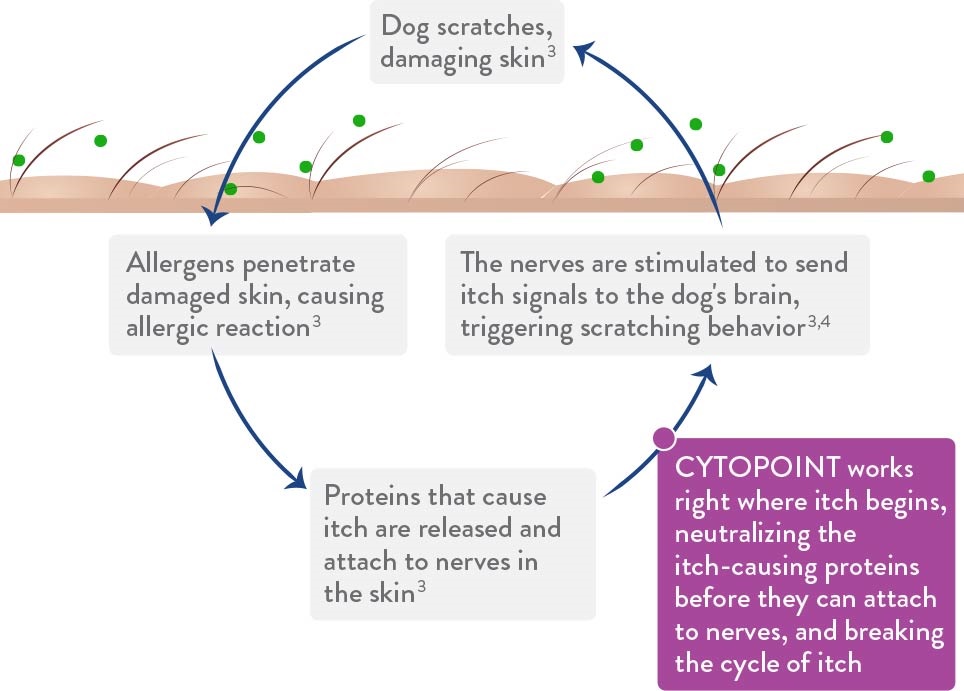An exciting new development for the skin world has arrived in the form of a monthly injection!
Around 10% of dogs worldwide can suffer from a type of allergic skin disease called atopic dermatitis. Dogs with this condition have it for life and develop extremely red, itchy and irritated skin that can be triggered by various allergens.
This new monthly injection is a canine monoclonal antibody that blocks interleukin 31. *Meh* you say? Well this is very exciting in the Veterinary World. monoclonal antibodies have been used in human medicine for a while, but this is the first time they have been made for Vets.
Why is this so exciting? Because the monoclonal antibody specifically targets and neutralises canine IL-31, an important protein messenger involved in sending the itch signal to the brain in atopic (allergic) dermatitis.
This injection is different from traditional drugs that treat itch. It is a biological therapy—a type of non-pharmaceutical treatment that works like your dog’s immune system.
In this case, the antibodies has been designed to specifically target and neutralize one of the main proteins that sends itch signals to your dog’s brain. This helps reduce scratching so the skin has a chance to heal. In studies, after one injection, the skin irriation improved within 1 day and kept itch controlled for a month.
In a clinical study, dogs receiving these injections had no more side effects than dogs who received placebo injections (injections with no treatment at all). It is safe to use in dogs of any age, and can be used with many other commonly used medications and in dogs with other diseases.
Because this monoclonal antibody injection is a biological therapy and not a drug, it is naturally broken down and recycled by the body. It is not eliminated from the body via the liver or kidneys like most pharmaceutical drug products.
Because it lasts a month it allows the skin to heal and the itch:scratch cycle to down regulate. As the skin heals it is harder for the allergens to penetrate that trigger the allergy.
Well that's great, but what about my itchy cat, you may be asking? At this point further research is being done as the cat itch scratch cycle is different, however these clever folk are working on it so watch this space!
In the meantime if you have a allergic or atopic dog who you think might benefit from this amazing technology then please get in touch with one of us at the Barn or feel free to download further information from the download section below!






